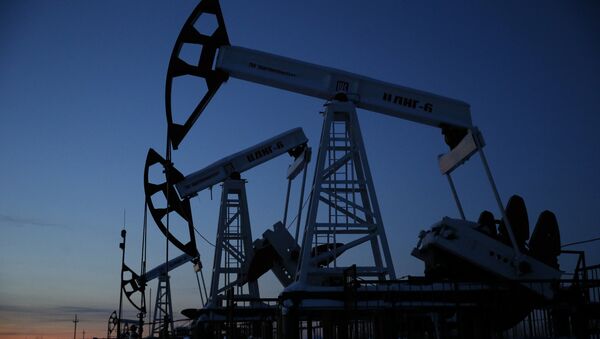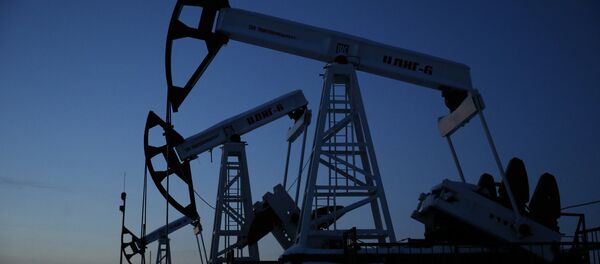WASHINGTON (Sputnik), Anastasia Levchenko — Earlier on Tuesday, the energy ministers of Saudi Arabia, Qatar and Venezuela held talks with Russia in Doha on the current oil market crisis. The countries agreed to freeze their oil output this year at the January 11 level. However, the decision is contingent on other oil producers joining in the agreement, according to Russian Energy Minister Alexander Novak. Iran is the main possible game-changer.
"The agreement is, in many respects, a hollow one," energy and metal information agency Platts oil analyst Paul Hickin told Sputnik.
Hickin explained that the agreement would freeze Russian production at record highs of close to 11 million barrels per day, as well as Saudi production at more than 10 million barrels per day — a rate at which it has been pumping oil for almost a year.
“And getting any cooperation from key OPEC players Iran and Iraq will be tricky,” he added.
Another expert, Oil Price Information Service chief oil analyst Denton Cinquegrana, argued the agreement resembles a "wait and see" approach.
“Production freeze slows down the building glut, but most still see production outstripping demand for the time being. Oil prices are not likely to recover until the global inventory builds stop,” Cinquegrana told Sputnik.
Moreover, Iran is determined to raise oil production after nuclear-related sanctions have been lifted and parties to the Doha deal would like Tehran see joining in, but experts agree such a development is unlikely.
"Iran has made it clear that they want market share back. They are probably not going to be willing to participate in a production freeze unless they are guaranteed to be allowed at least some production increase. Obviously higher prices would help them, but in this low price environment they will be looking for selling as many barrels as possible at the lowest price," Cinquegrana argued.
However, Hickin added, other oil producers are not willing to subsidize the extra Iranian output.
As for the United States or Canada, Cinquegrana pointed out, they are also unlikely to join the Doha agreement as their economies are not as much dependent on petrodollars.
Global oil prices plunged from $115 to less than $30 per barrel between June 2014 and January 2016, hitting their lowest levels since 2003, mostly because of prolonged global oversupply and sluggish demand.
The next ministerial meeting of OPEC and non-OPEC countries is set for June 2, where oil producing states are expected to determine oil extraction quotas.


